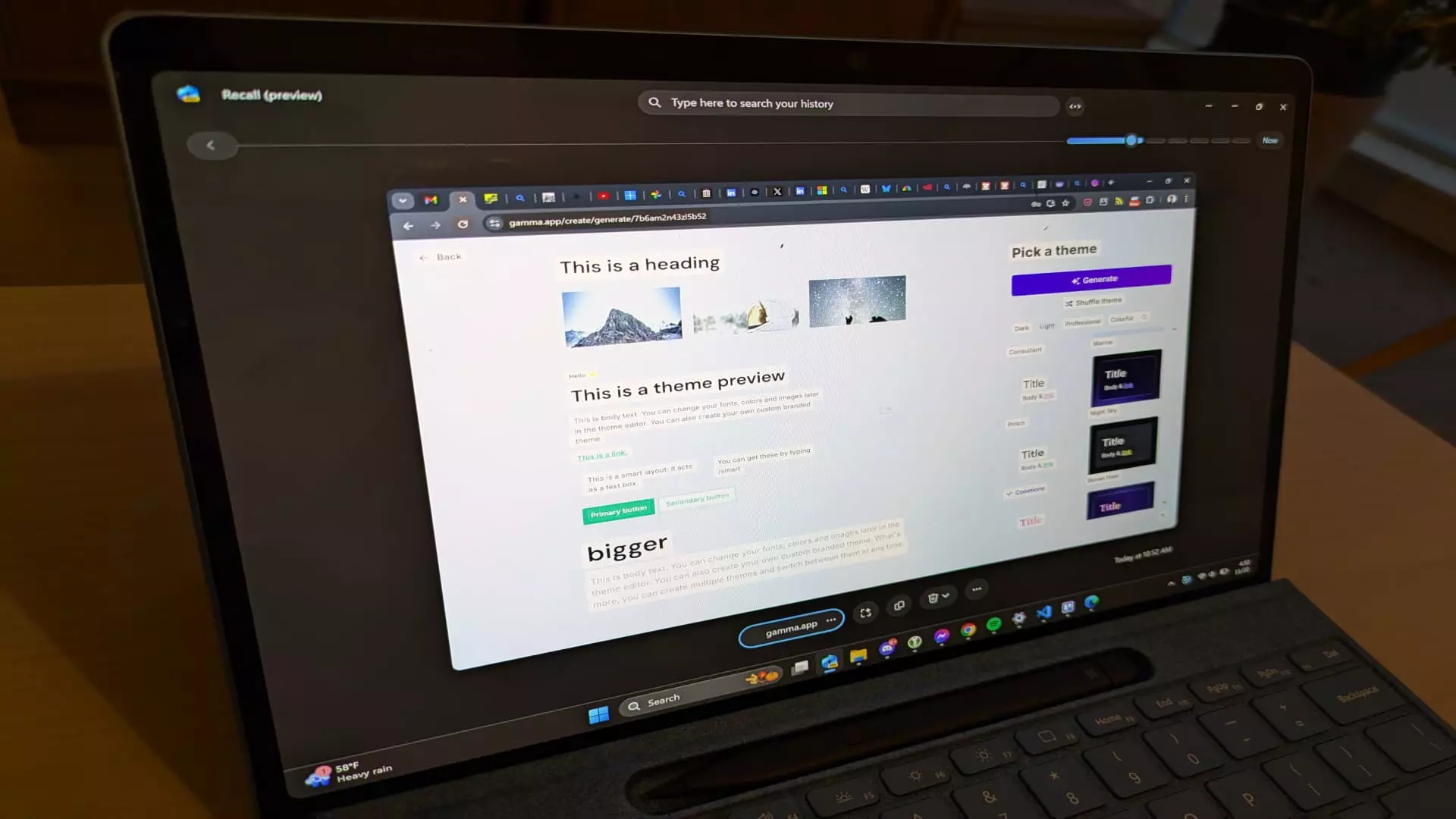Microsoft has always prided itself on innovation, launching features aimed at transforming the user experience across its platforms. The latest endeavor, known as Recall, is a feature that resembles a photographic memory tool designed to enhance productivity on its advanced Copilot+ PCs. Introduced initially in May, it aimed to bring artificial intelligence to the forefront, enabling users to retrieve past activities through keyword searches of automatically taken screenshots. Despite the excitement, a closer examination reveals several shortcomings that cannot be overlooked.
Recall was unveiled amidst a wave of optimism, with Microsoft positioning it as a groundbreaking addition for the Windows 11 operating system. The promise of enhancing memory recall by photographing the desktop activities users engage in seemed revolutionary. However, the clouds of skepticism quickly rolled in. Concerns about cybersecurity highlighted the potential risks that come with automatic data capture, pushing Microsoft to reevaluate its approach.
In a proactive response to potential misuse of Recall, the company implemented encryption for the database housing these snapshots and ensured that the feature would be disabled by default. Its rollout was initially set for August but faced delays, ultimately becoming available to testers in October. This cautious approach highlights the company’s awareness of the technical and ethical implications of such a feature.
Currently, Recall is accessible only to users of specific Copilot+ devices equipped with Qualcomm Snapdragon chips capable of handling AI tasks. Unfortunately, systems running on AMD or Intel processors are not included in the initial testing phase. This selective rollout limits the reach of Recall and presents a disparity among users of Windows 11. The requirement for devices to be part of the Windows Insider Program adds an additional layer of exclusivity, making Recall accessible primarily to tech-savvy early adopters rather than the average consumer.
Microsoft’s practice of releasing pre-release software aims to gather valuable feedback and make improvements before public release. Still, the constraints around hardware compatibility raise questions about the effectiveness of such a strategy. The exclusion of certain processors could lead to a fragmented adoption of what could be a pivotal feature for Microsoft’s ecosystem.
Reports from early testers paint a concerning picture regarding the functionality of Recall. One of the more alarming aspects is the delays between screenshots, leading to significant gaps in captured activities. Users expect a seamless and comprehensive documentation of their workflow, which the current iteration of Recall fails to deliver.
While there is an option to exclude specific applications from being captured, the incomplete list poses problems. Testers have noted that their apps might not appear in the exclusion list, meaning sensitive or irrelevant information could be documented without permission. This kind of oversight presents serious privacy concerns that Microsoft needs to address urgently.
The search functionality also raises eyebrows. Test testers encountered instances where anticipated search terms did not yield results, even when the content was previously captured. This inconsistency can lead to user frustration and erodes trust in the reliability of the Recall feature. For example, simple terms that should generate expected results, such as reference to recognizable subjects, yielded no outcomes at the anticipated level.
Despite the misgivings surrounding Recall, there are glimmers of potential that make it an interesting prospect. When functioning as intended, it offers an easy way to revisit digital moments, transforming the way users interact with their device history. However, the myriad of current shortcomings must be addressed if Microsoft wishes to capture the full interest of its user base. The balance between leveraging cutting-edge technology and maintaining user privacy is finely tuned, and Microsoft must navigate this smoothly.
In its current form, Recall may serve more as a tech curiosity rather than a fully fledged utility for productivity. As Microsoft continues to work through these issues, the success of Recall will largely depend on future updates and user feedback. The true test will be whether the company can meet expectations both in performance and security to offer a tool that enhances our increasingly digital lives.

